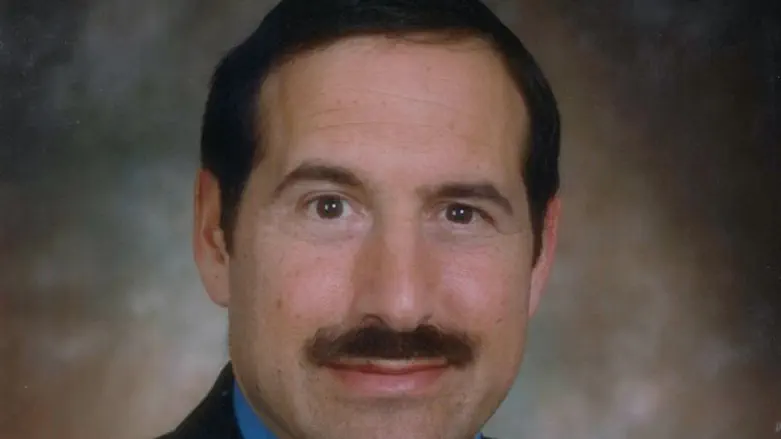
Yitro, the father-in-law of Moshe Rabbeinu was one of the most fascinating men ever to have walked on planet Earth.
We are told in the first Posuk of Parshat Yitro (18:1) he was the "Kohen of Midyan". Rabbi Yissochar Frand comments that this fact is highlighted to show that not only was he a gentile but a priest of Idolatry. He was a "professional idol worshipper".
Rabbi Frand brings down the Alshech HaKadosh to explain why the Torah mentions that he was the "Kohen of Midyan" at all. "The Torah wants to tell us exactly and precisely how far Yitro came and the secret of his success".
The Alshech says the secret of his success and transformation as well as conversion was the opening word of the Parsha, "VaYishma" ("And he heard"). He was willing to listen and learn. He was able to open his eyes and see truth. He was able to change and accept change. He was a rare individual and G-d Almighty had major reasons to devote an entire Parsha to him. We the Jews are to learn from this Man. The world, too, is supposed to learn from this giant.
Let us take a step back. According the Gemara Sotah (11a) Pharaoh had three advisors. They were Yitro, Iyov, and Bilaam. Much of what happens in Parshat Yitro, as well Parshat Balak, and Sefer Iyov can be better understood with this background information. According to the Gemara it was Bilaam who suggested to Pharaoh that all male Jewish newborns be killed. Iyov remained silent (perhaps thinking that maintaining his position with Pharaoh could help the Jews later instead of protesting and losing his standing in the palace).
He was punished with a life of pain and suffering for remaining silent and taking this position. The lesson is, it is better to protest at the critical moment than to remain silent. Yitro on the other hand did protest Pharaoh's treatment of the Jews and had to flee for his life to Midyan. He was blessed with having Moshe Rabbeinu as a son-in-law. Although the Torah records Moshe's fleeing to Midyan (2:15) after killing the Egyptian as a matter of happenstance, it would seem plausible that Moshe indeed knew of and possibly had interactions with Yitro while growing up in Pharaoh's palace. His fleeing to Midyan may not have been coincidental.
Yitro had risked his own life for the Jewish people. Moshe must have known that. He then spent 40 years with Yitro in Midyan. They were not strangers to each other. They had a special relationship. "So Moshe went and returned to Yeter, his father-in-law, and said to him, "Let me now return to my brethren who are in Egypt and see if they are still alive." And Yitro said to Moshe, "Go to peace." He believed in Moshe's mission, otherwise he would not have sent his daughter and grandsons in what would appear to be a danger zone (Ramban 4:19). Now fast-forward to Parshat Yitro. Rav Saadia Gaon, Rashi, the Abarbanel, take the position that Yitro came before the giving of the Torah. The Rashbam, Radak, Ibn Ezra claim he came afterwards.
The Abarbanel asks the question why didn't Moshe think of Yitro's advice on his own? (18:14) "The father-in-law of Moshe saw everything that he was doing to the people and he said, What is this thing that you do to the people? Why do you sit alone with all the people standing by you from morning to evening?" (18:18) "You will surely become weary-you as well as this people that is with you-because the matter is too hard for you, you will not be able to do it alone." The Abarbanel says, "It seems that the words of Yitro are correct on a policy level, but the actions of Moshe prove right on a spiritual level." The Abarbanel is saying that indeed Moshe knew about the advice before it was even given but took the purely spiritual path rather than the political path.
The Or Hachaim says in a similar vein that Moshe received prophecy while awake unlike all other prophets. The question for Moshe was whether it was a greater mitzvah to maintain this high level of communication with G-d versus what was politically expedient and beneficial to a larger number of people. Moshe chose to maintain this high level of spirituality over what was good public policy.
After Yitro's advice, G-d said that Moshe should choose what was in the best interest of the people and follow Yitro's advice. Rav Zaddok says that G-d set up Yitro to give the proper advice to teach that it is important for all Teachers to learn from their students and one who is on a higher level to learn from someone on a lower level. Yitro was through and through a Man who sought truth in everything. His counsel to Moshe was a major contribution. Yitro's descendants were blessed with sitting in the Sanhedrin.
Thank G-d, there are righteous among the Nations who have helped the Jewish People survive. Raoul Wallenberg, Oskar Schindler, and Chiune Sempo Sugihara come to mind. They all sought truth like Yitro and were not afraid of giving up their own lives to maintain Truth and help the Jewish people. Shabbat Shalom.
